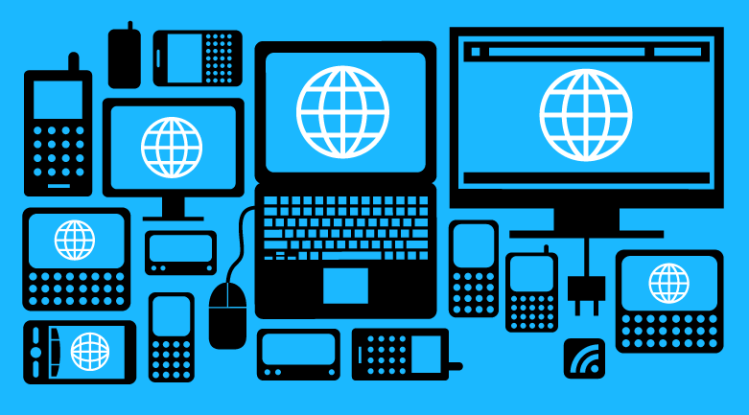Tomorrow the Federal Communications Committee will vote on whether broadband service can be regulated as a public utility. Here’s what you need to know:
The FCC is largely expected to vote to classify the Internet under Title II of the 1934 Communications Act. What that means is that the FCC will be in charge of making sure that Internet service providers like Comcast, AT&T, and Verizon offer equal access to high quality broadband.
In the lead-up to the vote, several groups are making a final push on the case against net neutrality.
This morning the House Energy and Commerce Committee is hosting a hearing about the implications of the net neutrality proposal currently on the table. Later today, the House Committee on Oversight and Government Reforms will hold a hearing that examines whether the White House put undue pressure on FCC Chairman Tom Wheeler to support Internet regulation.
One of the main reasons ISPs and Republicans are making a ruckus is because they were heading towards more favorable regulation under the FCC. Courts struck down the FCC’s first attempt to impose regulations on Internet providers in 2010. Since then, the FCC has been pursuing a more middle-ground approach to net neutrality, which would have resulted in less oversight of the carriers. To stem that effort, a number of Internet companies, including Netflix, Amazon, and AOL, formed an alliance and slowly built a rather forceful grassroots campaign in favor of web regulation.
Then, in November 2014, President Barack Obama released a video endorsing net neutrality and a proposal calling for FCC oversight of ISPs. While Wheeler seemed to still be promoting a “hybrid” approach to net neutrality as late as that month, in January he pivoted and came out in full support of the classification of the Internet as a public utility.
ISPs like AT&T have already threatened suit, and others are coming out against the potential decision. During the House Energy and Commerce Committee’s hearing titled “The Uncertain Future of the Internet,” the former Rep. Rick Boucher noted as much in his testimony on behalf of the Internet Innovation Alliance. He said that FCC regulation is a tenuous foundation for ensuring net neutrality, because it’s subject to the whims of the party in power. Approval of tomorrow’s net neutrality proposal and work surrounding that ruling “can be swept away in the next administration,” he said.
Instead of FCC regulation, Boucher said legislation is the way forward. But legislation is just another path to regulating ISPs and certainly not a superior one. Both legislation and FCC regulation under Title II can be overturned due to administration changes, and putting FCC regulations in place will not inhibit future Congressional legislation.
No doubt there is a lot of noise in the debate over net neutrality. Cutting through the fat, here are three things to know about tomorrow’s decision.
1) The FCC’s ruling could go into effect soon
The answer to when the rules will ultimately goes into effect depends on what the FCC ultimately decides, but it’s likely they’ll want to move quickly. You can expect the FCC will want to enact its ruling on a time frame of days and weeks.
There is a caveat to that timeline, however. If the FCC votes in favor of Wheeler’s proposal, it’s likely that the carriers will file for a stay to suspend the rules pending a challenge to the ruling. The court will have to decide, “Are these rules creating so much of a problem for ISPs, or can the ISPs live under them until we deal with the rules themselves,” said Michael Weinberg, vice president at Public Knowledge, a public interest group focused on tech policy and open standards.
If the stay is approved, it could be a long time before the FCC’s ruling goes into effect.
2) Citizens will be able to file complaints when carriers violate the rules
If the FCC votes to approve the ruling, we the people will have a regulator to turn to when ISPs are not abiding by the rules. This means that when carriers are throttling your data usage despite your unlimited data plan, you can file a complaint with the FCC. The FCC can force the carrier to stop throttling and even fine the carrier.
As it stands now, consumers have little recourse when ISPs act unfairly.
3) Tomorrow’s decision upholds the status quo
The reclassification of the Internet as a public utility ultimately shouldn’t really change your day to day. The purpose of the classification is to keep the net open, with equal service for all. The ruling is more of a prevention tool against changes to the way Internet service is provided now.
Recently, many carriers have been thinking of offering tiered subscriptions based on data usage and Internet connection speeds that some believe will stifle innovation. FCC regulation stops those deals dead in their tracks and lets ISPs know that they will have a challenging road ahead if they take steps to offer stratified services.
VentureBeat's mission is to be a digital town square for technical decision-makers to gain knowledge about transformative enterprise technology and transact. Learn More

